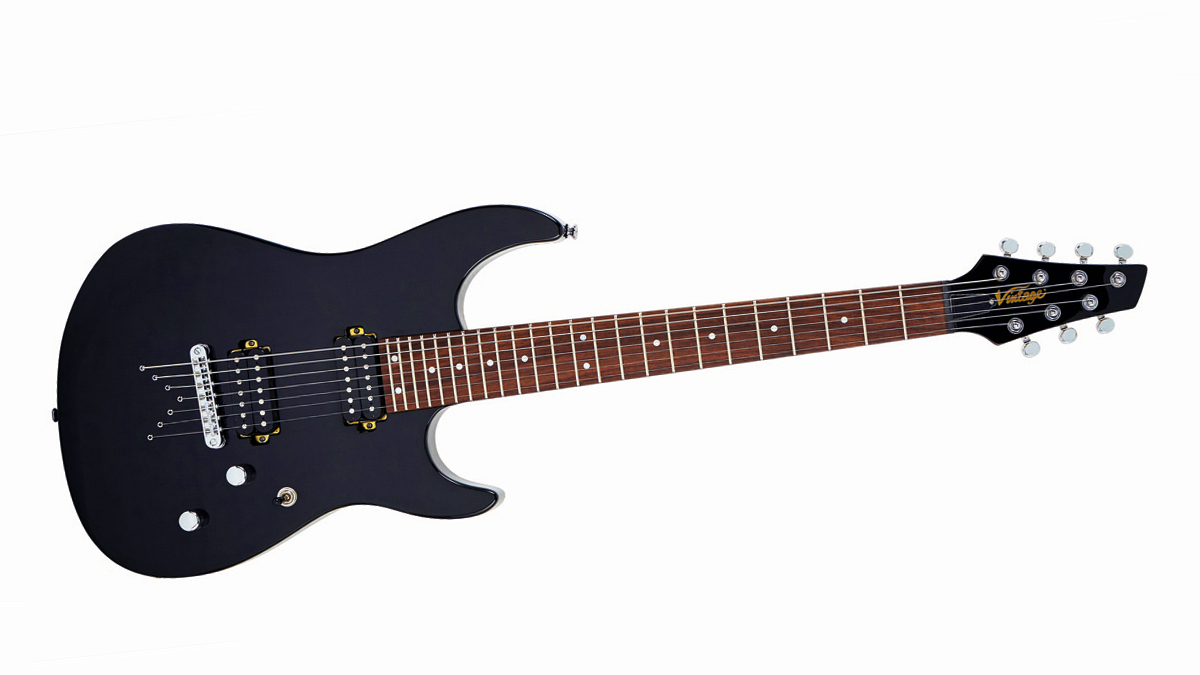MusicRadar Verdict
The V7 could have launched at a higher markup and you can only commend it as an instrument that ticks all the boxes at such mind-boggling value.
Pros
- +
Superb value. Impressive build.
Cons
- -
None.
MusicRadar's got your back
More often that not, you'll know if it's a guitar worth investing in within seconds of picking it up.
With higher-end instruments that's something you simply expect, but lower down it can be more a case of trial and error. The new V7 is something that offers affordability and playability, entering the market as not only the most wallet-friendly seven-strings out there but also one of the most comfortable to get to grips with.
The incredibly lightweight Eastern Poplar body ensures it's close to what you'd expect from a standard shred double-cut in feel, and doesn't carry that daunting sense of bulk seven-strings are often guilty of.
"The V7 looks metal, but it's capable of that and much more."
Aiding this is the guitar's low action factory setup, with a comfortable, slim maple neck that's fit for pretty much any task at hand: it's almost like you don't notice the extra string. For many players, that can only be a very good thing.
The sleek Gloss Black finish, classic chrome hardware and string-through body gives it a quiet confidence, simple and effective as it may be.
You couldn't ask for better pickups than the Wilkinson Double Coil PHS7s, not for this kind of money, anyway. The neck position harnessing the subterranean beef of the low B to make way for sweet mids and treble.
In between facilitates more Fender-like tones, again surprisingly well balanced and articulate, yet spiky enough to cut through.
Want all the hottest music and gear news, reviews, deals, features and more, direct to your inbox? Sign up here.
The bridge position feels clean even on higher gain settings, there's plenty of definition across all seven strings to play those embellished chords with no tonal clashing whatsoever, and rip through soaring leads that ring out loud and clear. Perhaps this is down to the natural brightness of the guitar, which counteracts its increased sonic depth with a rich, celestial airiness that enhances the sustain.
It certainly looks like a metal machine, but truth be told the V7 is capable of that and much more, with convincing blues tones and a basic jazzy wool, if you roll off the tone knob all the way to the end.
Perhaps where it excels, however, is usage in heavier gain territories - there's plenty of grunt to move some air, especially once you get palm-muting. From the tech-metal djent of Periphery and Tesseract to more classic nu-metal sounds made famous by Deftones and Korn, the V7 will most definitely have you covered.
The overall build quality is impressive, it holds tuning well across 24 frets and feels rigid - the kind of instrument you can trust on stage night after night. And, better still, for those inexperienced with seven-strings, there really could not be a better axe with which to familiarise yourself.
Amit has been writing for titles like Total Guitar, MusicRadar and Guitar World for over a decade and counts Richie Kotzen, Guthrie Govan and Jeff Beck among his primary influences. He's interviewed everyone from Ozzy Osbourne and Lemmy to Slash and Jimmy Page, and once even traded solos with a member of Slayer on a track released internationally. As a session guitarist, he's played alongside members of Judas Priest and Uriah Heep in London ensemble Metalworks, as well as handling lead guitars for legends like Glen Matlock (Sex Pistols, The Faces) and Stu Hamm (Steve Vai, Joe Satriani, G3).

